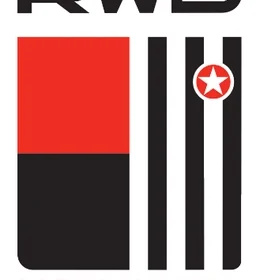Sogndal FC is a renowned Norwegian football club known for its passionate fan base, strategic gameplay, and significant contribution to Norwegian football history. This article delves into the club’s rich heritage, current standing, development strategies, and future prospects. Whether you’re a die-hard supporter or a curious football enthusiast, understanding the intricacies of Sogndal FC offers insights into a club that embodies both tradition and ambition 123b.com.
Historical Background and Evolution of Sogndal FC
Understanding the roots of Sogndal FC provides context for its identity today. The club’s journey from its inception to becoming a respected name in Norwegian football is marked by resilience, strategic growth, and community engagement 123b2.com.
Founding and Early Years
Sogndal FC was founded in 1913, making it one of the older clubs in Norway with over a century of football heritage. Originally established as a local sports club, Sogndal quickly distinguished itself through a focus on developing talented players and fostering community spirit. Its early years were characterized by participation in regional competitions, which laid the groundwork for professional ambitions.
The initial years were gradual in terms of success, but the club’s dedication to nurturing local talent set the foundation for future accomplishments. Local rivalries intensified, especially within the region, fueling the club’s competitive nature and strengthening its fan base.
Rise Through the Divisions
The transition from amateur to semi-professional status marked a pivotal phase in Sogndal FC’s evolution. The team’s perseverance paid off as they ascended through lower divisions, showcasing resilience and tactical growth. The club’s strategic approach involved focusing on youth development, scouting, and investing in coaching infrastructure.
By the late 20th century, Sogndal FC had established itself in Norway’s second tier, setting the stage for their eventual promotion to the top division. Their ascent reflected not only sporting prowess but also effective management and community backing. This period also saw increased media attention and sponsorship deals that helped sustain the club’s growth.
The Golden Era: Achievements and Notable Seasons
The early 2000s represented Sogndal FC golden era, marked by notable achievements including consistent top-flight performances. Their most remarkable seasons include finishing among the top teams in Tippeligaen (Norwegian Premier League) and qualifying for European competitions.
These successes were driven by a combination of talented player recruitment, tactical innovation, and strong leadership from the coaching staff. For example, under coach [insert specific coach if relevant], the team adopted a possession-based style, emphasizing technical skill and versatility. The club’s ability to develop young talent and integrate them into the first team became a hallmark of their success.
Community and Cultural Impact
Rooted deeply in Sogndal, a small town in Norway, the club’s influence extends beyond football. It acts as a cultural hub, uniting residents and fostering local pride. The club’s community programs, youth academies, and outreach initiatives demonstrate its commitment to social responsibility.





